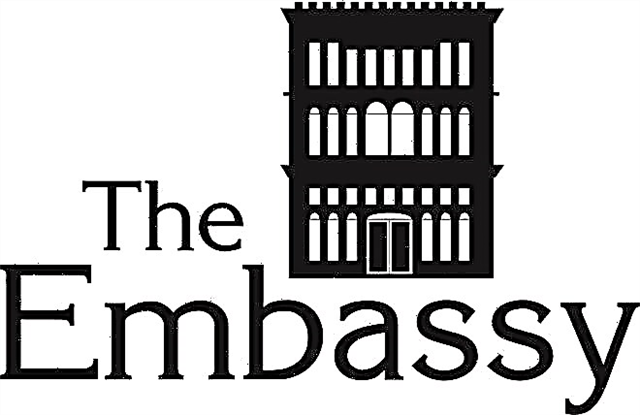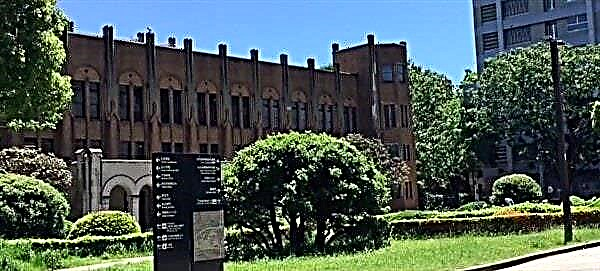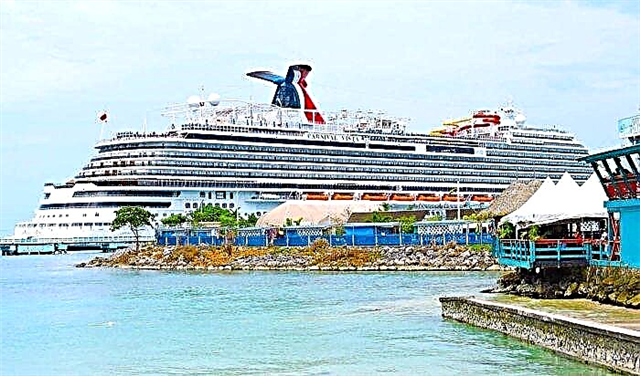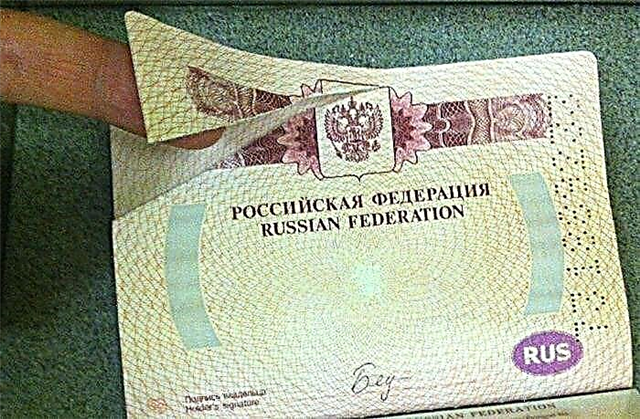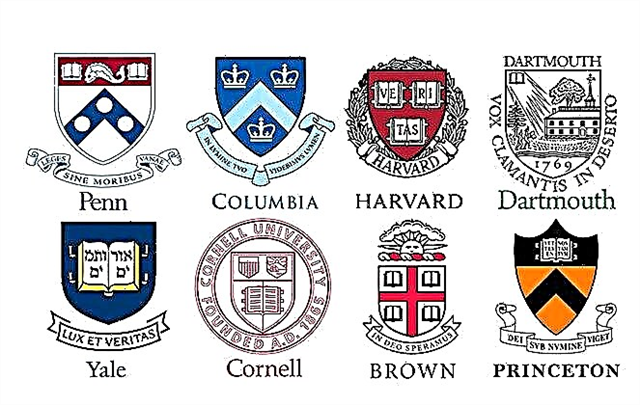A diploma from a foreign university is an important step towards a successful career. If you dream of studying in the United States and are ambitious enough to qualify for a place in the best educational institutions in this country, then you should choose the university of the legendary association known as the Ivy League.

History of the Ivy League
The Ivy League is an association of the eight oldest private universities in the United States. All of them are located in the northeast of the country and seven of them were founded before the independence of the United States.
- The first university association, which included educational institutions of the current Ivy League, appeared in 1870 for sports purposes - an association of students who were involved in water sports.
- In 1936, the sports director of Cornell University proposed the creation of an intercollegiate organization for the competition.
- After World War II, an association of student football teams appeared, and since 1952, competitions in other sports began to be held within the League.
The origin of the name Ivy League is still unclear. Some attribute it to the appearance of the universities, which were located in old buildings with walls thickly entwined with ivy.
Others attribute his appearance to a sports commentator who once called varsity football teams "ivy", doubting their professionalism.
Still others believe that the word Ivy comes from the Greek number IV (which in English is read as "i-vi"), and was originally supposed to denote the first four universities that entered the League.
Officially, the Ivy League is still a purely sports association. But the association includes universities that have gained fame not only in the field of sports.
The prestige of the League is formed by the high quality of education, strict selection for admission and belonging to the social elite. Therefore, these days, everyone involved in higher education does not have to explain what the Ivy League is in the United States.
Ivy League Universities
Even those who are far from educational topics have heard the names of Ivy League universities more than once:
- Harvard (Harvard University, founded in 1636) - Cambridge, Massachusetts.
- Yale (Yale University, 1701) - New Haven, Connecticut.
- Penn (University of Pennsylvania, 1740) - Philadelphia, Pennsylvania.
- Princeton University (Princeton University, 1746) - Princeton, New Jersey.
- Columbia University (Columbia University, 1754) - New York, New York.
- Brown University (Brown University, 1764) - Providence, Rhode Island.
- Dartmouth College (Dartmouth College, 1769) - Hanover, New Hampshire.
- Cornell University (1865) - Ithaca, New York.
Traditions and features
 Ivy League universities are among the top 15 universities in the United States. Harvard, Princeton and Yale Universities occupy leading positions among the best educational institutions in the country and in world rankings. They can study not only American citizens, but also foreigners.
Ivy League universities are among the top 15 universities in the United States. Harvard, Princeton and Yale Universities occupy leading positions among the best educational institutions in the country and in world rankings. They can study not only American citizens, but also foreigners.
Each Ivy League educational institution is unique in its own way. For example, Harvard is considered a source of personnel for the American elite: among its graduates there are 8 US presidents.
Yale is home to the nation's largest academic library and Peabody Museum of Natural History, with a huge collection of historical and cultural artifacts. Much attention is paid to the study of astrophysics, the university has three scientific observatories: in the USA, South Africa and Argentina.
Princeton University still adheres to the Code of Honor, adopted in 1893, regarding the inadmissibility of plagiarism or cheating on examinations. Examinations at the university are held without the participation of teachers, and the students themselves monitor the observance of the code.
Columbia University is known for training "people of action." Its alumni include 29 Academy Award winners and 29 heads of state of the world.
One of the most prestigious media awards, the Pulitzer Prize, is established at the Faculty of Journalism. The Harriman Research Institute is the world's largest academic center for the study of the USSR, Russia and Eastern Europe.
The University of Pennsylvania is home to the first electronic digital computer (ENIAC) and the world's first business school (Wharton School). The richest financier in the world, Warren Buffett, and US President Donald Trump studied here.
Brown University is known for its unique educational program: in it, students choose their own subjects for study and can do without grades. In addition, it is the only university in the United States with Egyptology and Mathematical History departments.
The BASIC programming language was created at Dartmouth College, and it also houses a huge library of Arctic research.
Cornell University became the first Ivy League institution to admit non-white students. Currently, it works closely with leading research centers in India, Singapore, China and other countries, and claims the status of the world's first transnational university.
Preparatory Programs
Competition for admission to elite US universities is very high and the selection is extremely strict. According to statistics, Ivy League universities enroll about 8-14% of applicants admitted to exams.
For schoolchildren 14-17 years old from around the world, Ivy League universities conduct summer schools and preparatory programs. Courses run from May to August and can range from 1 to 8 weeks.
Programs are very diverse: engineering, entrepreneurship, leadership courses, mathematics, science or humanities. The most popular camps are Yale Summer School and the Ivy League Leadership Tour.
 To enroll in a summer school, foreigners must submit:
To enroll in a summer school, foreigners must submit:
- Application (online on the university website).
- International certificate of proficiency in English TOEFL (more than 40 points) or IELTS (from 4.0), that is, level B2-C1
- A certificate with grades for the last year or several years with a notarized translation into English and the recalculation of the scores of domestic grades into the international GPA indicator, which must be at least 3.5 points.
- Letters of recommendation in English from two teachers of the school (teachers of subjects close to the subject of the summer course).
- Essay in English with a story about yourself.
- Proof of financial solvency - a statement from the parents' bank account.
Applications are submitted in April-May, the fee for considering the application is $ 50-150. The cost of a summer school at different universities varies from $ 4,100 to $ 11,000 for 2-3 weeks, students are provided with accommodation and meals, including vegetarian, halal and kosher cuisine.
Additional costs include:
- flight to the USA - from $ 500;
- medical insurance - $ 75-500;
- visa processing - about $ 250;
- payment for training materials - $ 75-300;
- funds for personal expenses - $ 150-300 per week;
- passing a language test - $ 180-260.
In some camps, students are credited with credits for their studies, and if after school they go to an American university, these credits will be counted for the first year.
Studying at a university summer camp does not guarantee admission. The probability of successful enrollment increases only with participation in the Secondary School Program at Harvard and the Pre-Baccalaureate Program at Brown University.
But the course in the summer school gives the student new knowledge and contacts with young people from different countries of the world, introduces the university and its requirements, improves language skills - and all these factors contribute to success.
Applicants from Russia
There is an opinion that it is almost impossible for immigrants from Eastern Europe to enter elite American universities, but in fact this is not the case. Ivy League universities admit 5-8% of foreign citizens annually, and the percentage of enrolled applicants from among those who applied to them is not much lower than in less prestigious universities.
In addition, Russian high school diplomas are recognized in the United States upon admission to undergraduate studies.
Many parents who dream of a successful future for their children are interested in how to enroll in Ivy League universities. This requires comprehensive preparation, which is recommended to start 2-4 years before graduation.
This is, first of all, high academic performance and knowledge of the English language. The result on the TOEFL exam must be at least 105-110 points out of 120 possible.
In addition, for admission to a bachelor's degree in the United States, you need to pass the SAT (Scholastic Assessment Test) - an academic test in mathematics, writing, reading and text analysis.
The list of requirements and necessary documents for admission to various specialties can be found on the websites of universities.
Filling out the online application correctly is essential. It should indicate the diplomas received at academic Olympiads, sports, social activities.
It is also necessary to submit letters of recommendation from teachers and a motivation letter from the applicant himself with a story about his plans and life aspirations. In addition, in recent years, representatives of the commissions have been studying the accounts of applicants in social networks.
If the applicant's data has been arranged by the commission, the final stage of selection will be the interview. It tests the level of knowledge of the language and the ability to independent non-standard thinking.
Features of training
 The curricula of different universities differ even when studying in the same specialty. Some of the subjects are compulsory, some students can choose themselves.
The curricula of different universities differ even when studying in the same specialty. Some of the subjects are compulsory, some students can choose themselves.
The training is very intensive and is aimed not only at mastering academic material, but also at developing analytical skills, creative and leadership qualities.
Ivy League students are attracted to scientific research from their first years. And although the teaching load is very high, the percentage of dropping out students in these universities is small: only about 2%.
Tuition fees
Tuition fees at Ivy League universities are very high: from $ 30,000 to $ 50,000 per year, depending on the specialty. But for talented students, including foreign ones, it is possible to receive grants and scholarships.
Sports scholarships are especially often awarded to help universities recruit talented athletes to their teams, and grants for students who have proven themselves in scientific research.
How students live
The student campus of an elite university is a real city within a city. The educational infrastructure includes academic buildings, laboratories, research centers, libraries, museums, theaters and even art galleries. Universities publish periodicals, television and radio broadcasts.
Comfortable life for students is provided by comfortable hostels, fitness centers, canteens, cafes and snack bars. Each university has professional sports facilities: stadiums, tennis courts, gyms. Each university is actively developing up to 40 sports disciplines, prestigious competitions are held.
An important tradition of the Ivy League is student fraternities. Belonging to one or another brotherhood provides access to certain social circles, and contacts between its members often persist throughout life.
Career prospects of graduates
Contrary to popular belief, having a degree from Ivy League University does not mean that its holder will immediately receive a higher salary compared to colleagues. But employers often give preference to graduates of these universities when hiring, and not in vain: high-quality training and the ability to make independent decisions usually make such people effective employees.
In addition, useful acquaintances and friendships established within the walls of the university often have an impact on the entire subsequent life of a person.
Interesting Facts
 Over the centuries of existence, Ivy League universities have accumulated many diverse traditions and overgrown with curious facts. Here is some of them:
Over the centuries of existence, Ivy League universities have accumulated many diverse traditions and overgrown with curious facts. Here is some of them:
- Each Ivy League university founded before 1800 has a Greek motto in its symbolism.
- The League's educational institutions receive the largest amounts of funding in the world.
- 11 American politicians who signed the US Declaration of Independence studied at the University of Pennsylvania, and 5 at Columbia University.
- For a long time, the League's universities were admitted strictly according to racial and religious principles - exclusively white-skinned Protestants of Anglo-Saxon origin. Cornell University was the first to violate this principle.
- For 203 years of existence, Dartmouth College has been attended exclusively by men. The first female students appeared there only in 1972.
- It is still possible to join the student fraternities of the League's universities by inheritance, if the student's father or grandfather was in this fraternity.
- Yale houses the second largest collection of dinosaur remains in America and the world's largest fully preserved brontosaurus.
- Cornell University owns the Arecibo Observatory in Puerto Rico with the world's largest radio telescope.
- At Columbia University, work was carried out on the study of the atomic nucleus, which laid the foundation for the Manhattan Project and the creation of nuclear weapons.
- The Bakhmetyevsky Archive is kept in the library of Columbia University - one of the largest collections of materials from Russian white emigrants.
- The absolute leader in the world in terms of the number of graduates who have become Nobel laureates is Harvard (153 people). Columbia University has 101 laureates, Yale 52, Cornell 45, Princeton 37, Pennsylvania 29.
- 15 US presidents studied at Ivy League universities, including the last five: George W. Bush (Yale), Bill Clinton (Yale), George W. Bush (Yale and Harvard), Barack Obama (Columbia and Harvard), Donald Trump ( Pennsylvania).
Conclusion
The most prestigious universities in the United States are Ivy League universities. It is difficult to enroll in them, but it is still possible, including for applicants from Russia. These institutions are interested in attracting talented and motivated foreigners who can change the world for the better. Universities provide graduates not only with quality education and all-round development, but also with useful contacts in the circles of the American elite.

